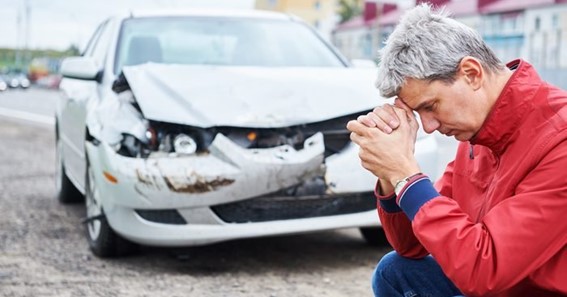Even though everyone wants to avoid an accident, they do happen. Unfortunately, car accidents generally with little time to understand what happened, and the results can be disastrous and often chaotic. Whether you are in a car accident, a motorbike accident, or a freight accident, your initial actions can help ensure that you are safe in the long run.
When you are involved in an accident, it may be a very stressful period. According to Barnes Firm, a reputable group of car accident lawyers in NYC, even if you don’t believe you’ve been hurt, and even if your car appears to be undamaged, you never know what consequences will emerge later. Hence, it is crucial to take immediate action after a car accident. Here are 10 pointers to help you in the moment of crisis.
- Check injuries and seek medical assistance
Before analyzing property damage, ensure that everyone engaged in the accident is safe. Most people who are in shock due to such an occurrence try to minimize their trauma by denying injury. Many people just want to get home and analyze what happened, but it’s vital to get an immediate medical checkup.
Severe injury symptoms aren’t typically obvious right away but can appear days or even weeks afterward. Always seek medical attention, even if you do not believe you require it.
2.Never leave the scene
The only time you should leave the scene of an accident is if you need emergency medical assistance, and even then, only in an ambulance. Staying at the location will help avoid confusion and ensure no hit-and-run charges are brought.
Unless they obstruct traffic, the cars involved in the accident should be left where they are. But you can make sure to pull completely off the road to avoid being hit by approaching vehicles.
Call the cops
All of the information will be obtained by the police officer from all parties concerned. The officer will make an official record of the accident, which you will acquire later. Insurance companies frequently use an accident report to corroborate facts and assign fault. Without an accident report, the at-fault party may deny the entire series of events.
4.Keep your cool
A car accident is a nerve-wracking experience. It’s never a bright idea to lose your cool, especially on the other driver. Don’t start blaming the other person or yelling. It isn’t going to fix anything, and it will neither help anyone. You must be in a decent state of mind to analyze the situation and do everything necessary to document the mishap.
Gather vital information
Although the police will collect information from all parties involved, you must obtain as much information for your own records as possible, especially since accident reports are typically not accessible for several weeks.
If feasible, acquire the following information about the other driver: name, address, phone number, driver’s license, license plate numbers, details of the insurance company, and policy numbers. In addition, if there are any eyewitnesses to the accident, make sure to collect their names along with contact information.
Take photos
Photographing the events at the crash scene can be pretty valuable for proving fault. Gather maximum evidence you can, even if it appears insignificant, such as property damage, the location of the accident, and photos or videos of any injuries. Keep all evidence in a safe place because memories change over time, and evidence might be misplaced.
Make no unnecessary exchanges
To obtain information, only speak with the other individual involved. Make no confessions of wrongdoing or any unnecessary claims. Before speaking, always get counsel from your personal injury attorney.
Make no on the spot deal
Make no side settlement with the other driver to accept or pay cash for the incident. A ‘handshake transaction’ with money on the spot could result in substantial consequences later.
Consult an Expert Lawyer
Speak with your personal injury attorney once you’ve obtained all of your insurance information. Unless told otherwise by your attorney, do not provide any written statements or recorded interviews to your insurance carrier or the other person’s insurance company.
Your lawyer can defend your rights and ensure that substantial evidence is not destroyed. In addition, they can advise you on everything from making sure you obtain compensation for your vehicle to how to get the best medical treatment available.
Get in touch with your insurance company
While it may be tempting to strike a monetary bargain to avoid filing an insurance claim, failing to notify your insurance company after a collision can leave you liable for the accident’s consequences. You should contact your insurer and alert the company of the damages as soon as possible. You will be given a Claim Intimation Number, which you should keep on file for future reference.







